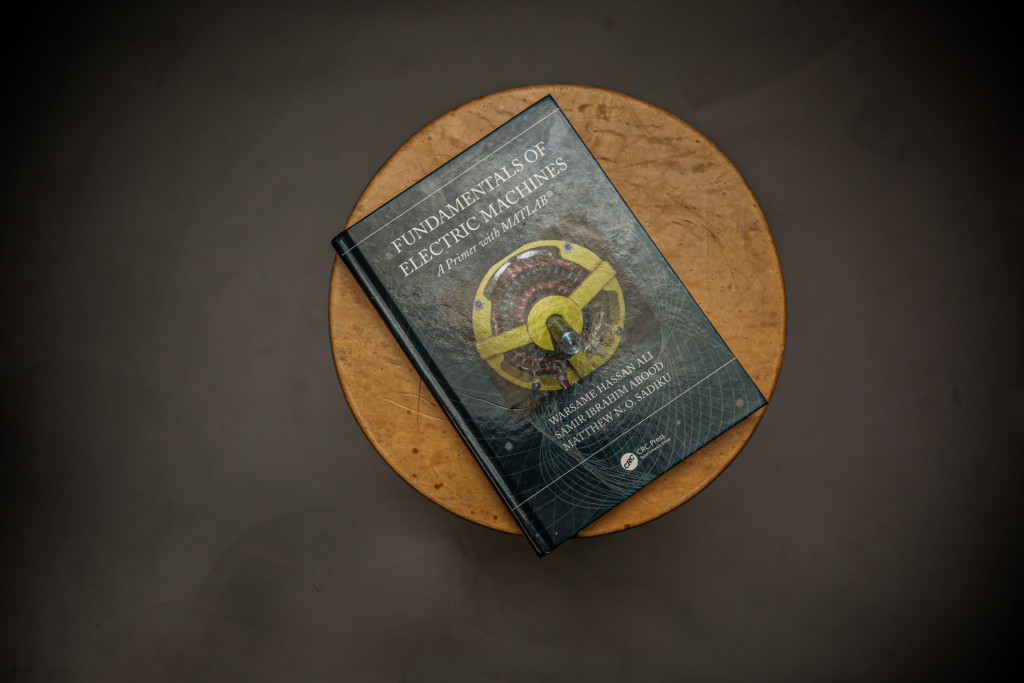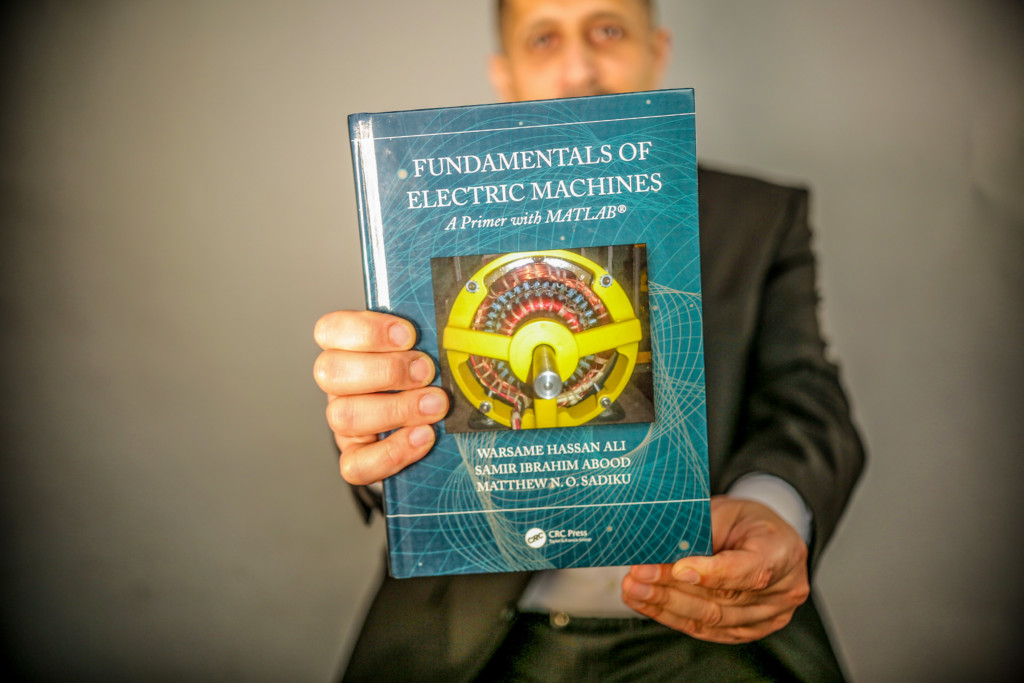When Samir Abood came to Prairie View A&M University as a Ph.D. student, his plans did not include collaborating on a textbook. But having taught electrical engineering at various universities in Iraq, his knowledge and research skills allowed him to work with two PVAMU professors who have a lot of writing experience.
Abood, along with Drs. Warsame H. Ali and Matthew O. Sadiku, both professors in the PVAMU’s Department of Electrical and Computer Engineering in the Roy G. Perry College of Engineering, wrote “Fundamentals of Electric Machines: A Primer with MATLAB®”. The eleven-chapter book provides clear, engaging, and easy-to-understand coverage of direct current (DC) and alternating current (AC) machines, according to a review description.
“We have another book we wrote together, me and Dr. Sadiku, which is used all over the world,” Ali said. “Our student [Abood], who had very good experience teaching and collecting research in Iraq, joined us to do his Ph.D. program here at Prairie View. He saw the book we had and asked if he could cooperate with us in writing an energy conversion book, and we welcomed the idea.”
Designed for a three-hour semester course, “Fundamentals of Electric Machines: A Primer with MATLAB®” is intended as a textbook for senior-level undergraduate students in electrical and computer engineering.
“This is one of the unique books at the present time where the student will have a simulation and an analytical solution for understanding the problem and of understanding the electric AC and DC machines. So, the students will have invested a lot of time to understand the cause,” Ali said.
Abood, who should complete his Ph.D. in electrical and computer engineering in the fall of 2020, said he came to Prairie View because its program was closely aligned to his master’s degree.
“Tracking power systems is closest to my field. I came from Iraq in 2016 and started my studies at PVAMU in 2017,” said Abood.
Ali said Abood has excellent potential in the power area, which includes electrical power engineering and renewable energy technology, to name a few.
“Nowadays, power area faculty members are very rare and hard to find. If you look in our area right now, compared to the universities around us, our program is unique,” Ali said. “We have invested about $900,000 worth of state-of-the-art equipment and technology related to the area we are teaching in the graduate-level courses, and we have aid mainly in power area courses in the Ph.D. program.”
Ali and Sadiku said graduates of PVAMU’s electrical engineering program typically do well.
“Master’s degree students get jobs with major companies before they even start their Ph.D. Those who complete the Ph.D. program – some of them are teaching in other universities, and others are working at major software companies, many in research development. So, our recruitment is really high.”
Ali, Sadiku, and Abood have another book coming out soon that covers using supervisory control and data acquisition software.
###
By Sammy G. Allen


